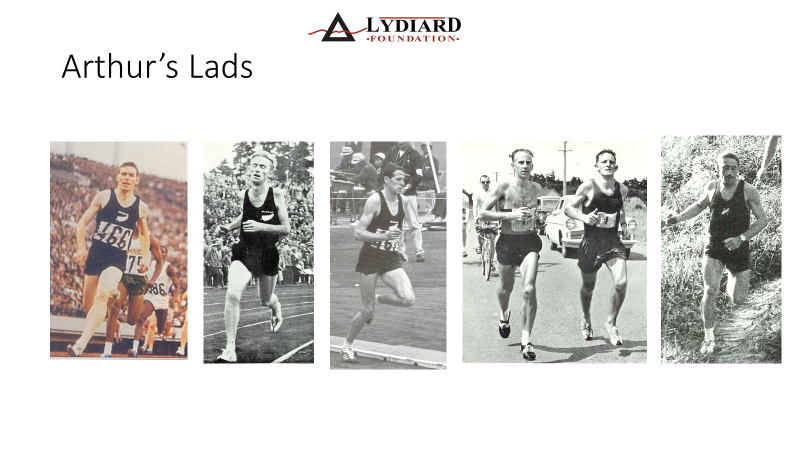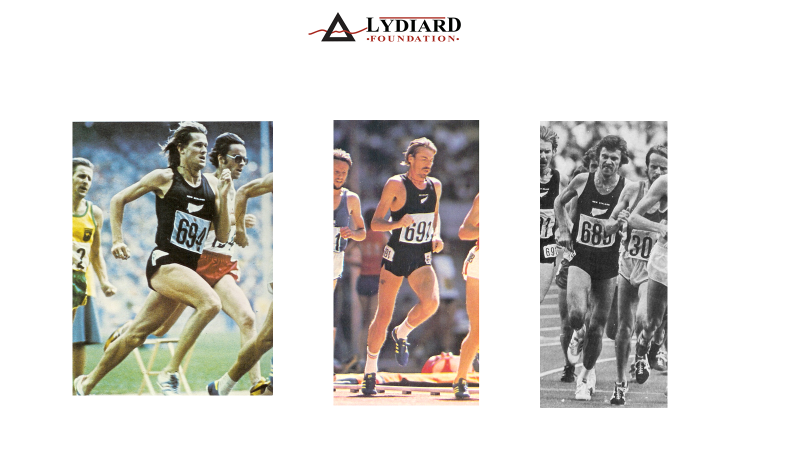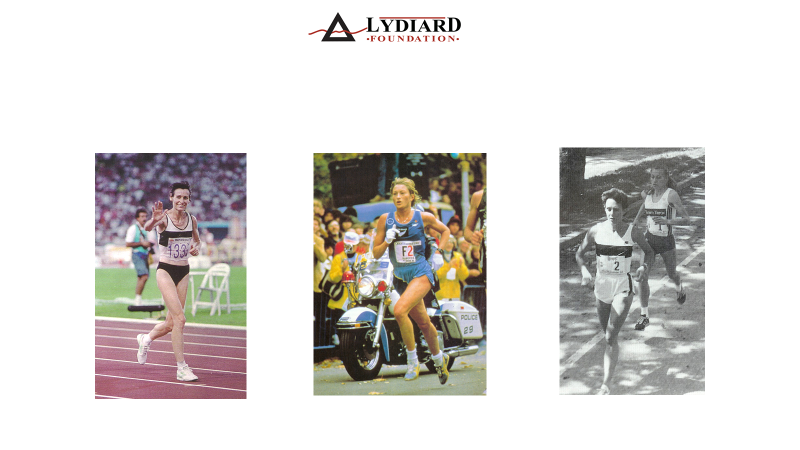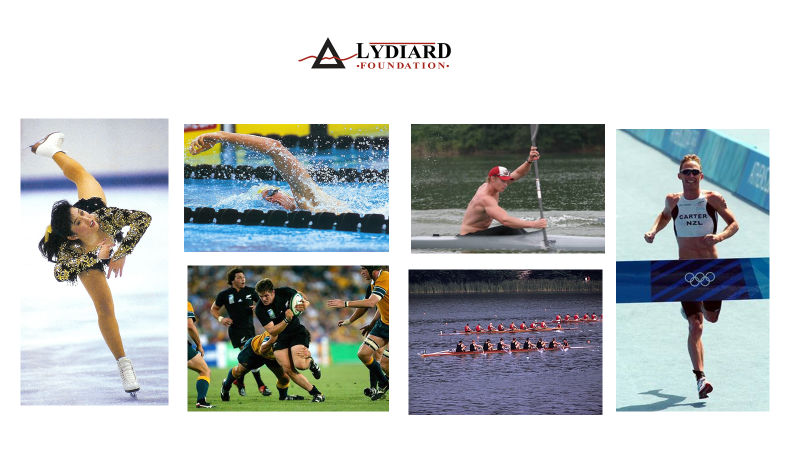Arthur Lydiard (1917−2004) was a legendary figure in the sport of running. One of the greatest coaches of the world, Lydiard helped popularize running as the commonplace sport it is today. His method of coaching was instrumental in transforming endurance training coaching methods and is attributed as the basis of modern−day coaching methods.
A native of New Zealand, Lydiard was a keen runner who experimented on himself using different training types. He discovered that when he balanced distance with speedwork in his training, not only did his marathon times improve but so did his track times. Lydiard's experiments enabled him to unravel the fundamentals of conditioning and he completed his recipe for training in the 1950's. By then he knew how to mix the marathon type mileages, hill work, leg speed work, sprint training, the sharpening and freshening. Arthur turned his sights to coaching and he adapted these training sessions to meet the needs of different athletes so that they could peak for key races.
Recruiting a group of young men in the suburb of Owairaka in Auckland, Lydiard's athletes achieved great success on the highest stage with this training approach. His most notable successes were with Olympic gold medalists Peter Snell, (800m 1960, 800m & 1500m 1964); Murray Halberg, (5000m 1960); and bronze medalists, John Davies (1500m 1964); and Barry Magee (1964 Marathon). Pictured below from left to right.
 In the 1960's Lydiard began to influence other coaches around the world, working with Budd Winter in Mexico and spending time in Finland, where the coaches of Lasse Viren and Pekka Vasala took his ideas on board. It was in 1972, four years after working with Lydiard, that Viren won Olympic Golds in the 5,000m and 10,000m with a world record in the 10k, and Vasala won gold in the 1500m.
In the 1960's Lydiard began to influence other coaches around the world, working with Budd Winter in Mexico and spending time in Finland, where the coaches of Lasse Viren and Pekka Vasala took his ideas on board. It was in 1972, four years after working with Lydiard, that Viren won Olympic Golds in the 5,000m and 10,000m with a world record in the 10k, and Vasala won gold in the 1500m.

 Arthur later influenced coaches to the second generation of New Zealand Olympic medal success, including John Walker (1500m gold medal 1976) coached by Arch Jelley, Dick Quax, (5000m silver medal 1976) coached by John Davies, Rod Dixon, (1500m bronze medal 1972) coached by his brother, John Dixon; (pictured from left to right), and Lorraine Moller (bronze medal 1992) coached by Dick Quax.
Arthur later influenced coaches to the second generation of New Zealand Olympic medal success, including John Walker (1500m gold medal 1976) coached by Arch Jelley, Dick Quax, (5000m silver medal 1976) coached by John Davies, Rod Dixon, (1500m bronze medal 1972) coached by his brother, John Dixon; (pictured from left to right), and Lorraine Moller (bronze medal 1992) coached by Dick Quax.
 Lorraine Moller was one of a trio of three Lydiard−trained Kiwi women who performed with distinction on the world stage: Allison Roe, whose phenomenal 1981 winning campaign, included the Peachtree Road Race and Boston Marathon and a World Best New York City marathon. Anne Audain took Gold and Silver in Commonwealth Games and was a prolific winner of road races in the USA in the 1980's.
Lorraine Moller was one of a trio of three Lydiard−trained Kiwi women who performed with distinction on the world stage: Allison Roe, whose phenomenal 1981 winning campaign, included the Peachtree Road Race and Boston Marathon and a World Best New York City marathon. Anne Audain took Gold and Silver in Commonwealth Games and was a prolific winner of road races in the USA in the 1980's.
 Lydiard's approach was both intuitive and practical, but he later worked with physiology and sports medicine experts to establish the scientific reasons that were behind his success. He made his methods available to everyone and travelled extensively spreading the word on correct training. The Lydiard system has been applied to other sports including rugby, cycling, canoeing, triathlon, ice−skating, rowing and squash.
Lydiard's approach was both intuitive and practical, but he later worked with physiology and sports medicine experts to establish the scientific reasons that were behind his success. He made his methods available to everyone and travelled extensively spreading the word on correct training. The Lydiard system has been applied to other sports including rugby, cycling, canoeing, triathlon, ice−skating, rowing and squash.
 Lydiard was also a strong promoter of running for health and was asked to train a group of heart patients (pictured below) in Auckland with easy distance running. Many of these patients went on to run marathons.
The famous American coach Bill Bowerman (pictured above in the cowboy hat with Lydiard) visited Lydiard and took the new jogging approach back to the USA in the 1970@apos;s and the worldwide running boom was born.
Lydiard was also a strong promoter of running for health and was asked to train a group of heart patients (pictured below) in Auckland with easy distance running. Many of these patients went on to run marathons.
The famous American coach Bill Bowerman (pictured above in the cowboy hat with Lydiard) visited Lydiard and took the new jogging approach back to the USA in the 1970@apos;s and the worldwide running boom was born.

 Today the Lydiard Foundation promotes Arthur's successful training principles across the world.
Today the Lydiard Foundation promotes Arthur's successful training principles across the world.

